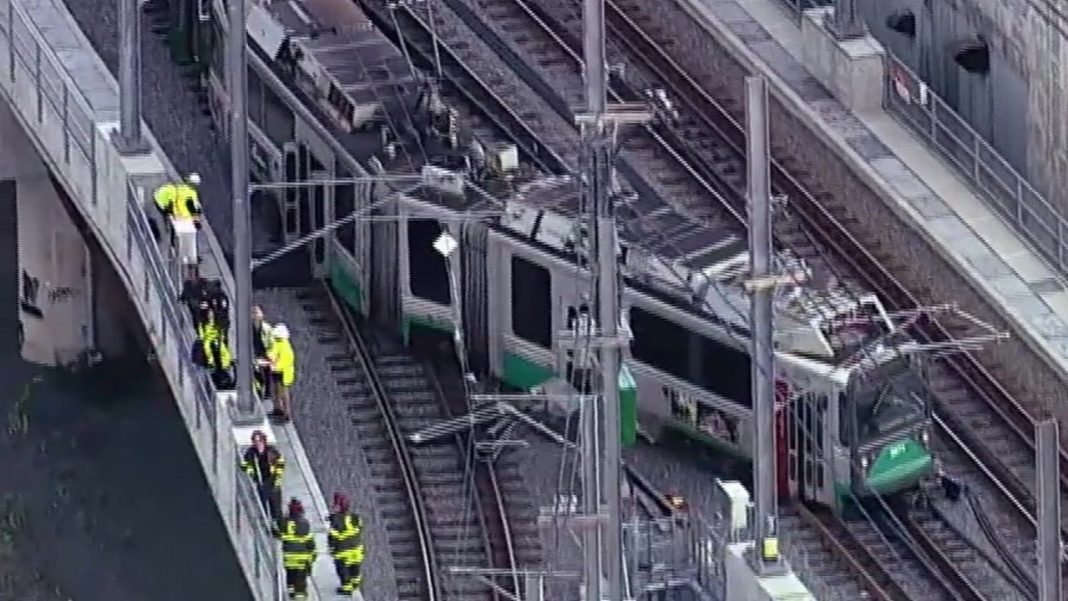On a seemingly ordinary Tuesday afternoon in Cambridge, Massachusetts, a sudden disruption jolted the routine of countless commuters. At approximately 5 p.m., an MBTA Green Line train derailed near the Lechmere station, sending a ripple of concern through the community and prompting a swift response from emergency services.
The immediate aftermath of the derailment saw seven passengers transported to local hospitals, with the Cambridge Fire Department confirming that while several individuals were evaluated for injuries, they were all deemed non-life-threatening. This incident highlights the precarious nature of daily commutes for many in urban areas—an unsettling reminder that while mass transit is designed for safety and efficiency, unforeseen accidents can occur, posing risks to passengers.
In response to the derailment, the Massachusetts Bay Transportation Authority (MBTA) quickly mobilized resources. They announced via social media that shuttle buses would replace train services between North Station and Medford/Tufts for the remainder of the day. This temporary measure not only aimed to mitigate the disruption caused by the incident but also ensured that commuters had alternative means to reach their destinations. For those looking for an alternative route, the MBTA suggested using the Route 87 bus while train services remained halted.
Fire crews were proactive in their response, disabling the catenary power to the train to ensure the safety of both passengers and emergency personnel. This step is crucial in such scenarios, as it prevents further electrical hazards, allowing for a safer environment for rescue operations.
As investigations are underway, the MBTA issued a public apology to riders for the frustration and distress caused by the derailment. Their commitment to a thorough investigation reflects an understanding of the responsibility they hold in maintaining public trust. “We are committed to thoroughly investigating this matter to ensure this does not happen again,” the statement read, underscoring the authority’s dedication to improving safety and reliability.
This incident raises pertinent questions about the state of public transportation infrastructure and safety protocols. Recent studies indicate that incidents like these, while relatively rare, can have lasting impacts on community trust in public transit systems. Moreover, with urban populations continuing to grow, ensuring the safety and reliability of mass transit is more critical than ever.
In the wake of such events, it is essential for transportation authorities to adopt a transparent approach, keeping the public informed not only about immediate actions taken but also about long-term strategies to enhance safety measures. Engaging with communities through forums or feedback channels can be a constructive way to rebuild trust and ensure that the voices of riders are heard.
As the situation develops, commuters and residents are reminded to stay updated with ongoing announcements from the transit authority. Understanding the intricate balance between public safety and efficient transit is crucial for fostering a resilient urban environment. Public transportation should never be viewed merely as a means to an end; rather, it should be a cornerstone of community connectivity and safety.

